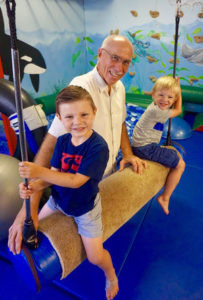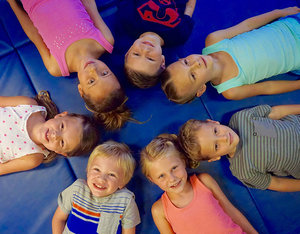About Functional Integrated Therapeutic Services
Pediatric Occupational Therapy
Serving San Diego, California
Functional Integrated Therapeutic Services (FITS) is home to the top pediatric occupational therapists in San Diego. We offer therapy and treatment for a variety of conditions, using cutting edge research to influence our treatments. Our team has the training, experience, and character to tackle any situation.
We are the experts in Pediatric Occupational Therapy in San Diego, CA. Whether your child has an autism spectrum disorder, anxiety, ADHD, or other developmental disabilities, our team of professionals are here to help your child develop the skills they need to become a highly functioning through therapy and treatment. We offer a variety of programs such as Auditory Intervention, Occupational Therapy, Wellness Rhythms, School-Based Services, Physical Therapy, Speech Therapy, Applied Behavior Analysis (ABA), and Enrichment Programs. We use cutting edge research to influence our treatments, and our team has the training, experience, and character to tackle any situation.
Our founder, Mark Wilson, is licensed by the state of California in occupational therapy and has been serving the San Diego area for over 20 years. We know how important it is to address a child’s individual needs. That is why we offer one-on-one therapy. Our therapists can meet your child in their office or at home in order to better understand their environmental barriers. We are so dedicated to your child’s needs that we can meet with them once a month, once a week, or even once a day.
For the best occupational therapy that your child needs, give us a call today to schedule your appointment.
Reviews
Functional Integrated Therapeutic Services
Pediatric Occupational Therapy Serving San Diego, California
Thank you Functional Integrated Therapeutic Services! FITS is highly recommended for Pediatric Occupational Therapy here in the San Diego area. My daughter always had a fun time in this children’s facility. The staff was very friendly and they took good care of my daughter’s learning needs.
Best children’s facility in San Diego! My son is always happy and excited to go to his OT appointment. He has a great time playing, learning, and making friends. Keep up the great work Functional Integrated Therapeutic Services!



